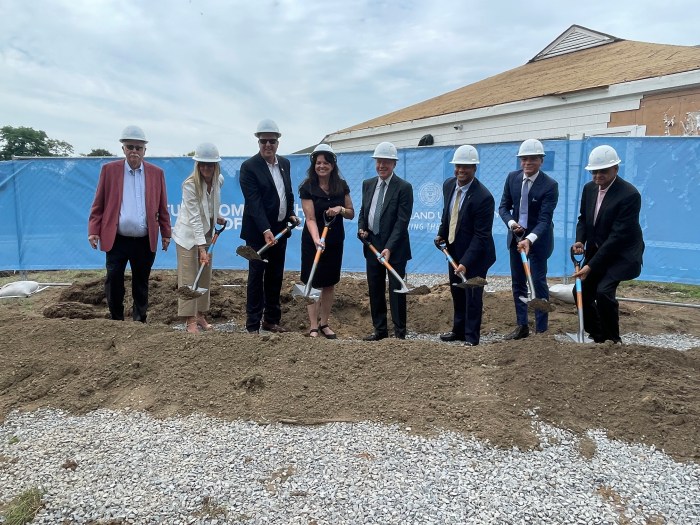Massapequa’s Board of Education attended a work session with Superintendent Lucille F. Iconis that included a panel of experts to address the social/emotional appropriateness of a sixth grade move into Berner Middle School. Iconis focused on which mindset the district wants to embrace, fixed versus growth.
“A growth mindset changes and develops constantly and is related to opportunities,” she said. “This district prides itself on improvement.”
Back in the early 1990s, an Advisory Task Force was convened on grade configurations. The recommendation was to move grade six into the middle school, but the building could not accommodate the increase of students. With the decline in enrollment, a new advisory task force was formed two years ago to examine successful secondary models and reconfiguring the district’s instructional program. The task force unanimously recommended a 6-8 model, which is prevalent across Long Island. The recommendation was not accepted with two trustees abstaining for further information.
Iconis presented the board’s goals this September with an objective to provide multiple opportunities and systematic support for students to build strong post-secondary credentials. She made several recommendations including to research the re-configuration of the middle school once again.
The panel consisted of district psychologists with 70 years of combined experience across all academic levels to speak about the social emotional needs of young adolescents. Dr. Deering, Dr. Doring and Dr. Neary reviewed 12 key educational practices to meet early adolescent development, which centers on providing a safe school environment with strong adult role models to help guide students in developing a sense of self to make constructive decisions. The more young teens are offered various learning and social opportunities, the more it fuels motivation and better equips them to forge strong peer relationships. The school setting and strong family involvement is instrumental in facilitating social/emotional growth to develop strategies for conflict resolution, goal planning by observing and reflecting, developing empathy and building skills for interpersonal relationships.
Paul Weber, executive assistant guidance, reviewed the student transition to Berner, which currently includes parent and student orientations, video conferences, visits for plays/programs, Tour the Schedule opportunities and small group counselor meetings that focus on organization, study skills and stress management. Support resources for students include guidance counselors, psychologists and a social worker.
“Motivating them and giving them the capacity to contribute is very important for them now and their college transcripts later,” he said of students’ opportunities.
Detective Pamela Stark from the Nassau County Police Community Affairs office presented comprehensive programs to educate students to make good decisions in response to the substance abuse epidemic. “Too Good For Drugs” for K-12 students and “Impact” for middle/high school highlights the effects of poor decisions.
To round out the panel, Jamie Bogenshutz from YES Community Counseling Center reviewed the current trends minimizing risks facing youth. Bogenshutz has been working in the surrounding community for close to 40 years as a clinical social worker and credentialed alcohol/substance abuse counselor. She stated that protective factors far outweigh risk factors and students who are afforded opportunities to engage in extracurricular activities are less likely to engage in substance abuse. She could not site any research that stated that a 6-8 middle school model raises the risk of substance use.
“Being near older children will not necessarily impact upon a child’s decision to use; it is far more complicated than that,” she said. “It’s more about building a solid emotional foundation and keeping our children engaged, ensuring they feel loved and connected.”


































